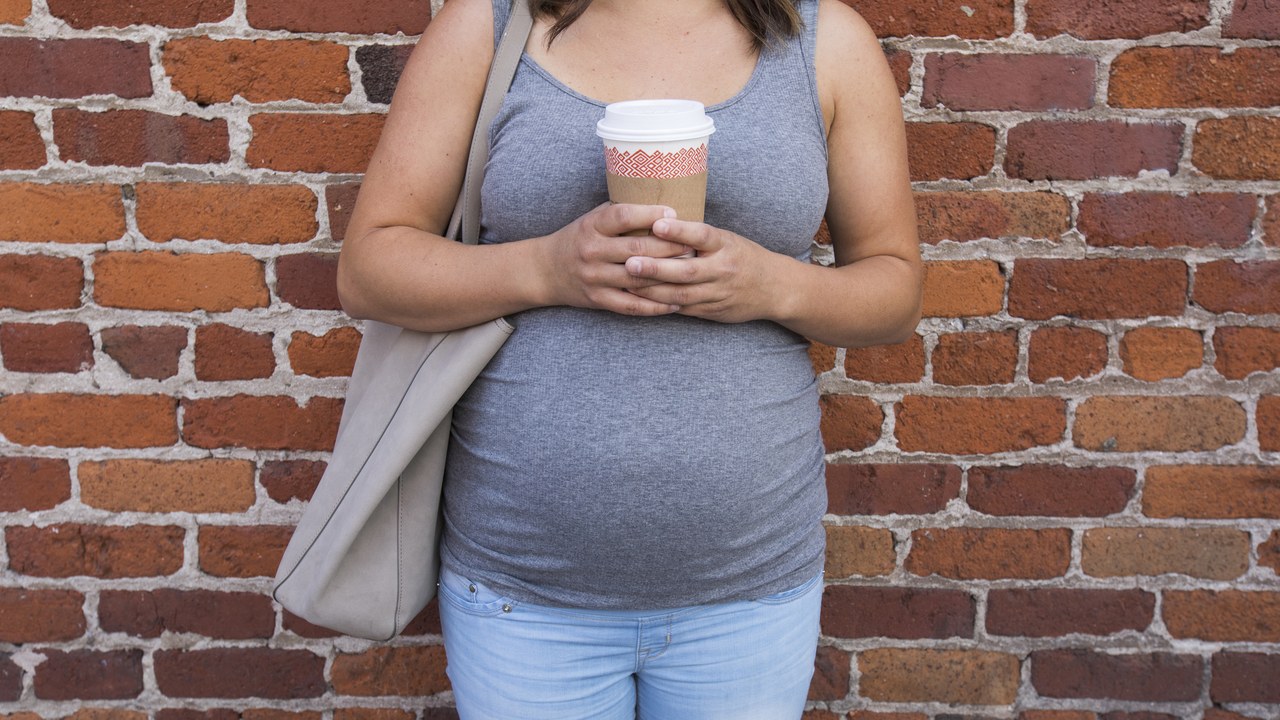A Male Barista Shamed a Pregnant Woman for Ordering a Macchiato—and People Have Thoughts

Ask any pregnant woman and she’ll likely tell you stories of unsolicited advice they’ve received from both strangers and friends about how she should behave and the choices she makes. For some reason, some people feel incredibly emboldened to offer their (often uninformed) thoughts about everything from whether or not she’s going to breastfeed to what she puts into her body.
Take this recent example from British comedian and actress Tiffany Stevenson, who says she witnessed a coffee-shaming incident recently. “Unbelievable bit of womb bothering in Starbucks,” she tweeted. “A pregnant woman got her Caramel Macchiato and the guy behind the counter said ‘Oh, it’s for you. Do you want me to make a decaf?’” After the woman said “no thanks,” the barista reportedly pressed on, according to Stevenson’s tweet: “No I should [make it decaf] because caffeine is bad for the baby.”
The woman in line informed the barista that she has one coffee a day (more on that in a minute)—not that she needed to justify her order to begin with—after he continued to question her. Stevenson, “almost spontaneously combusting,” then piped in, telling the barista to stop, she tweeted. “Then he says ‘Oh just because it’s bad for the baby so that’s why I’m saying it’…Then he continues to try and justify policing a complete stranger for 5 minutes. He was maybe 30 years old max.”
“Are they also doing Ob/Gyn training at Starbucks these days?” Stevenson wondered.
First, let’s just state the obvious and say that it’s none of this man’s business what the pregnant woman drinks. Second, the American College of Obstetricians and Gynecologists states that moderate caffeine consumption of less than 200 mg per day—the equivalent of one to two cups of coffee—”does not appear to be a major contributing factor in miscarriage or preterm birth.”
New York-based certified childbirth educator, Fern Drillings, R.N., M.S.N. concurs, telling us that 200 mg per day (or about 12 ounces of coffee) is indeed the standard and “completely fine.” (One thing you should be mindful of, however, is caffeine in other sources like tea, chocolate, and soda, she adds. Specific caffeine levels in store-bought drinks aren’t always known, Drillings says, so when in doubt, ask or talk with your OB.)
For some pregnant women, there might actually be a benefit to a sweet, caffeinated drink like a macchiato Drillings says. “While it’s very common, especially after 36 weeks, for the baby’s movement to slow down because it’s running out of room, women can get anxious. So I tell women if you haven’t felt the baby move in a little bit, have something either cold or sweet to eat or drink. I usually say to start with a glass of cold water, then if that doesn’t work a glass of orange juice. If not, I usually say have a Frappucino because it’s got the cold, the sugar, the caffeine and that usually gets the baby going.” If that doesn’t work, talk to your doctor, she says.
This is just further evidence that we shouldn’t make assumptions about the choices women are making. Drillings also reminds us all to “consider the source” when evaluating advice about your health and rely on that of medical professionals, not baristas.
Social media users were quick to respond to Stevenson’s tweets. “SO. MANY. MEN think they know better than women….what is good for [pregnant/nursing/single/married/happy/unhappy] women. KILLS ME!!” one wrote. Another tweeted, “@Starbucks Here’s hoping this bit of #mansplaining baloney has been seriously addressed. I love that you ask me how I want my coffee but that’s where it ends.”
Stevenson tells Glamour that she is still getting replies from women saying something similar had happened to them—and from men either claiming she made up the story or telling her that the barista was just being “nice” or “concerned.” “Control of women is often framed as ‘advice or suggestion’ and I’m so bored of it,” she says. “I really thinking a proper awakening is due for know-it-all, interfering sexist men.”
Enough with trying to legislate women’s decisions about their bodies and their lives—and yes, that includes coffee intake.